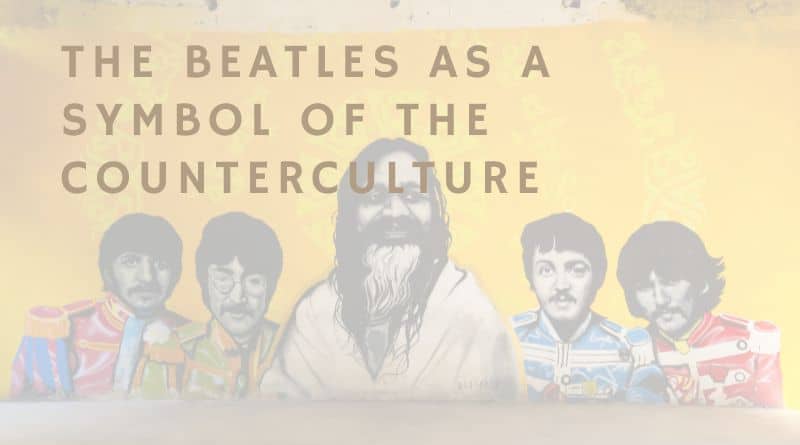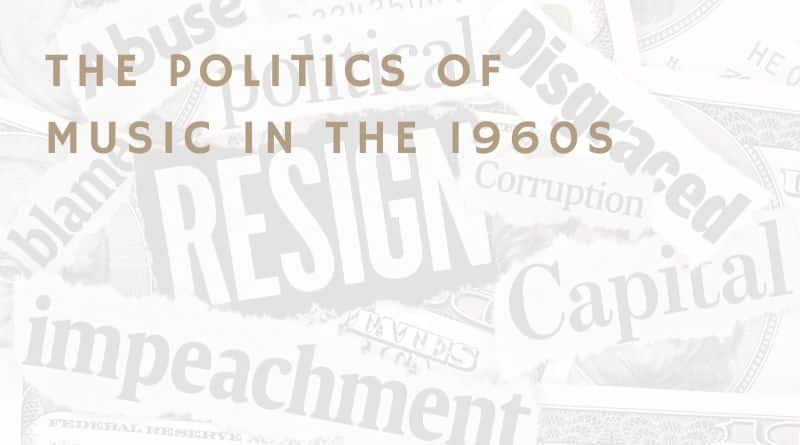[mwai_chatbot_v2 id="default"]
Undoubtedly, The Beatles are the greatest band of all time. Their music has been enjoyed by successive generations, and even today, Beatlemania endures.
What was the cultural and political context that led to Beatlemania? Examining the social and political climate of the 1960s can help us understand how this phenomenon thrived. During this time, there were significant social and political changes occurring, particularly in America. Civil rights movements were gaining traction, racial tensions were escalating, and youth culture was becoming more prominent with the rise of trends like rock ‘n roll.
Four young men from Liverpool came onto the scene and quickly gained popularity with their catchy melodies, witty lyrics, and charming personalities. They had no idea that their modest start would eventually lead them to become one of the most influential musical acts in history.
The Emergence Of The ‘Youthquake’
I am thrilled to discuss how the Beatles played a major role in the emergence of the ‘Youthquake’ during the 1960s. The youth counterculture during that time was significant in challenging traditional social norms and advocating for civil rights, promoting independent thinking among young people. This cultural revolution was widespread, and the Beatles were a massive sensation that contributed greatly to it.
The impact of Beatlemania was immense, giving rise to a new era of pop culture and driving the youthquake.
Youth Counterculture
The ‘Youthquake’ was a thrilling period when young individuals were enthusiastic about challenging established norms and breaking barriers. This cultural revolution was greatly influenced by Beatlemania, whereby young people all around the world adopted their music and rebellious mindset. Their music wasn’t just entertaining, but it also aimed at defying authority and relishing the liberty to communicate without any criticism.
The Beatles encouraged us all to think differently, inspiring us to question the status quo and stand up for our rights.
Their use of songs brought about a new phase of self-expression that continues to have significance even today, showcasing the potent impact music can have in influencing social changes.
Cultural Revolution
The impact of The Beatles on the social upheaval of the ‘Youthquake’ was significant. They encouraged young people to question traditional values and expand their horizons, ushering in a fresh era of youth empowerment and individualism. Their music revolutionized cultural norms and continues to resonate with audiences today. Perhaps this is why they enjoyed such an enthusiastic fan base during the Beatlemania era. In essence, The Beatles inspired us to be daring, courageous, and unafraid when it comes to standing up for our beliefs.
It demonstrated the immense influence that music can have in promoting positive change, motivating us to persist in advocating for our rights. We are deeply grateful for their contribution, as it is impossible to determine what our circumstances would be without their efforts.
Beatlemania
The phenomenon of Beatlemania is inseparable from the ‘Youthquake’. It represented a complete cultural revolution where people from different parts of the world acknowledged and embraced a unique form of protest music.
The Beatles played a leading role in the movement, and their music connected with everyone who wanted to bring about change in society, not just young adults. Their songs captured the values of freedom, justice, and self-expression that we continue to uphold today. Their music gave us a platform to speak out against oppression with passion and resilience.
The impact of Beatlemania on history is significant and will always be remembered by those who were affected by it.
The Beatles As A Symbol Of The Counterculture

I admire The Beatles for their significant role in the social movements of the 1960s. Their music served as a medium to express the political climate of the time and they became representative of youth counterculture during that period. Their enormous impact on society remains evident till date and their legacy is something to be proud of.
The Beatles’ Impact On Social Movements
The Beatles were a significant representation of the counterculture movement, and their impact on social causes cannot be ignored. They not only influenced cultural changes but also empowered the younger generation, making them a major force in shaping society during that era.
The legendary band, The Beatles, used their music and messages of love and peace to inspire people globally, empowering them to stand up for their beliefs. Their songs became anthems during various civil rights protests and were associated with political causes, including feminism and anti-war movements. The band’s timeless tunes held powerful meanings that changed the face of culture forever.
The Role Of The Beatles In Political Discourse
The Beatles went beyond just being a musical group. They utilized their music as a means of expressing strong ideas and embodying the anti-establishment mood of their era. Their music covered various themes such as war, women’s rights, social justice and conflicts between different generations, allowing those who were ignored to finally have a voice.
The Beatles’ unique bravery and desire to make a difference in the world through their music set them apart from other bands. Although they were ahead of their time, their powerful lyrics and involvement in political conversations still resonate today. Their timeless messages and tunes ensure that The Beatles will continue to be a significant part of history for generations to come.
The Beatles As A Symbol Of The 1960s Youth Culture
The Beatles symbolized the 1960s youth culture and rebelled against the status quo, challenging traditional norms. The media widely publicized this movement, creating a hype surrounding their music that appealed to young people globally.
The Beatles’ popularity among teens was not solely attributed to their catchy tunes, but also to the deeper meanings in their lyrics which addressed issues such as civil rights and generational divides. This unique blend of style and substance resulted in The Beatles embodying the spirit of youth rebellion during a time of great turbulence in history, elevating them from a band to a cultural symbol.
The Impact Of The British Invasion
Its impact was immense and resulted in changes in how we listen to music and dress. Furthermore, it had a significant economic impact on the music industry and a political impact on our perception of identity.
Cultural Impact
During the 1960s, The Beatles were incredibly popular and their influence was widespread. They were seen on TV screens and heard on radio stations, with constant media coverage of “Beatlemania”. People of all ages were drawn to the band from Liverpool, and their impact not only captivated audiences globally but also changed the cultural scene for many years.
The British Invasion’s impact on culture endures till this day, as numerous fans across generations still sing along to classics such as “Hey Jude” and “Let It Be”, thanks to the music, energy, and creativity of the Fab Four.
Economic Impact
The economic impact of The Beatles was as significant as their cultural influence. They brought a fresh wave of energy and enthusiasm to a nation that had long been divided by class distinctions. Even though they hailed from a less privileged region of Liverpool, their fame and popularity transcended cultural barriers and generated a whole new universe of admirers worldwide.
The success of The Fab Four demonstrated that passion, hard work, and authenticity are more valuable than money. Through these values, they attained worldwide superstardom and made a significant impact on music history. Their accomplishments remain an inspiration today.
Political Impact
The Beatles became famous and their impact on British culture lasted. They played a role in a cultural revolution that challenged the class structure, giving everyone a chance to have a voice. This created optimism among fans, showing that hard work and dedication could lead to anything.
It’s understandable why they remain as one of the most legendary groups ever. Their impact will continue to inspire future generations to aim for excellence, regardless of their upbringing or financial circumstances.
The Effects Of The Vietnam War
It’s fascinating how the Vietnam War affected American politics and caused social unrest within the country. The time period had a unique atmosphere that even influenced the rise of Beatlemania.
Impact On U.S. Politics
The impact of the Vietnam War extended beyond politics and also influenced popular culture. The Beatles, who were seen as icons of youth and pop culture, showed support for the anti-war movement, which encouraged numerous young individuals to coordinate demonstrations against the US military’s engagement in Southeast Asia.
The songs of this group served as background music for these events and also expressed the views of people who were against the conflict. Additionally, they created the song ‘Give Peace A Chance’, which soon became a signature song for peace activists all over the world.
The impact of Beatlemania on shaping public opinion about the war and inspiring the 1960s youth movement is evident.
Domestic Social Unrest
The Vietnam War caused domestic social unrest, as the political and cultural landscape of the 1960s created tension between generations. The younger generation viewed consumerism as against their ideals, while others saw it as a sign of progress.
The Beatles’ songs, such as ‘Revolution’, resonated with people who opposed the United States’ participation in Vietnam. The music encouraged listeners to challenge authority and support what they believed was right.
The rise of youth movements across the country highlighted the significant influence of Beatlemania in spurring social transformation. The enduring themes of peace and love in their music still hold relevance among fans in the present day.
The Politics Of Music In The 1960s

As a big Beatles fan, I’m looking to explore the role of music in politics during the 1960s and how The Beatles contributed to that movement. Specifically, I want to understand how their music was a form of resistance and represented the changing society of the time.
Music As Political Resistance
In the 60s, The Beatles represented the height of rock and roll culture. They used their music as a means of political protest, questioning commonly accepted societal customs and challenging pop culture standards.
They promoted the idea of people coming together despite differences in race or religion, using their distinctive sound. In addition, they spoke out against injustice during a challenging time and motivated many others to follow suit.
It is truly remarkable how something as seemingly simple as music can have a significant impact and influence on our world. The Beatles’ legacy continues to resonate even today.
Music As A Symbol Of Social Change
The Beatles were not only a band, but they also became symbols of social change. By expressing teenage rebellion through their music, they defied the old order and opposed censorship and oppression. Their message resonated with young people globally, who viewed them as a symbol of optimism for a better future.
During a turbulent time in history, the Beatles became symbols of resistance and a strong influence for positive change. Their artistic creations conveyed important messages about unity and justice, which continue to hold relevance today.
Frequently Asked Questions
How Did Beatlemania Begin?
The youth culture of the 1960s wanted something new and found it in Beatlemania. The phenomenon started with four lads from Liverpool and quickly spread internationally due to catchy music, clever lyrics, marketing, and media hype. The popularity of the Fab Four’s charm and rock & roll sound quickly gained momentum, captivating audiences worldwide.
The Beatles revolutionized pop culture forever with John Lennon’s quick-wittedness, Paul McCartney’s singing, George Harrison’s soulful guitar playing, and Ringo Starr’s punchy drumming.
What Influence Did John Lennon Have On The Counterculture?
John Lennon was one of the most influential figures in the counterculture revolution. His political activism, fight for peace and commitment to challenging traditional gender roles and racial issues pushed boundaries around consumer culture.
He encouraged others to think critically about their surroundings, inspiring a cultural shift away from mainstream norms. As an iconic part of The Beatles’ legacy, his influence continues today as fans celebrate not only their music but also John’s dedication to making the world a better place.
How Did The British Invasion Change The Music Industry?
The British Invasion, spearheaded by the Beatles, forever changed the music industry.
Music sales trends shifted towards a more youth-oriented sound and style of pop culture.
With unprecedented media coverage, gender roles were challenged as teenage girls around the world fawned over their idols.
The Beatles’ influence extended far beyond just their songs; they helped to define an entire generation with their memorable fashion statements and social commentary.
In short, Beatlemania took hold of popular culture in ways that had never been seen before or since!
How Did The Vietnam War Affect The Beatles’ Success?
The Beatles’ success during the Vietnam War era was remarkable, as their music and fashion trends represented a cultural identity that resonated with young people around the world.
As media hype spread more rapidly than ever before, class divisions dissipated and youth culture gained momentum like never before – Beatlemania was born!
Fans of The Beatles were captivated by this new phenomenon, which captured the spirit of revolution in a way no other band had done previously.
What Were The Specific Political Implications Of The Beatles’ Music?
The Beatles’ music was the soundtrack to a youth revolution, bringing cultural diversity and an unprecedented popularity surge. Their influence on media was immense, with their international fandom spreading far beyond Britain’s shores.
The political implications of their music were huge: it challenged traditional values, sparked conversations about freedom and equality, and gave young people around the world hope for a better future. From anti-war songs to messages of love and unity, the Beatles changed (and continue to change) how we view society today.
Conclusion
I’m a huge Beatles fan, and I’ve always been fascinated by the social and political context of beatlemania.
The emergence of this iconic band in the 1960s was nothing short of revolutionary – they virtually changed the face of popular music forever!
John Lennon’s influence on the counterculture movement cannot be underestimated, as his lyrics spoke to an entire generation struggling with issues like war, oppression and civil rights.
The British Invasion dramatically altered the course of American music history, while songs like ‘Give Peace a Chance’ became rallying cries for those protesting Vietnam.
Their message was loud and clear: Love is more powerful than hate.
It’s no wonder that Beatlemania still lives on today – their timeless sound and messages are truly out-of-this-world!
